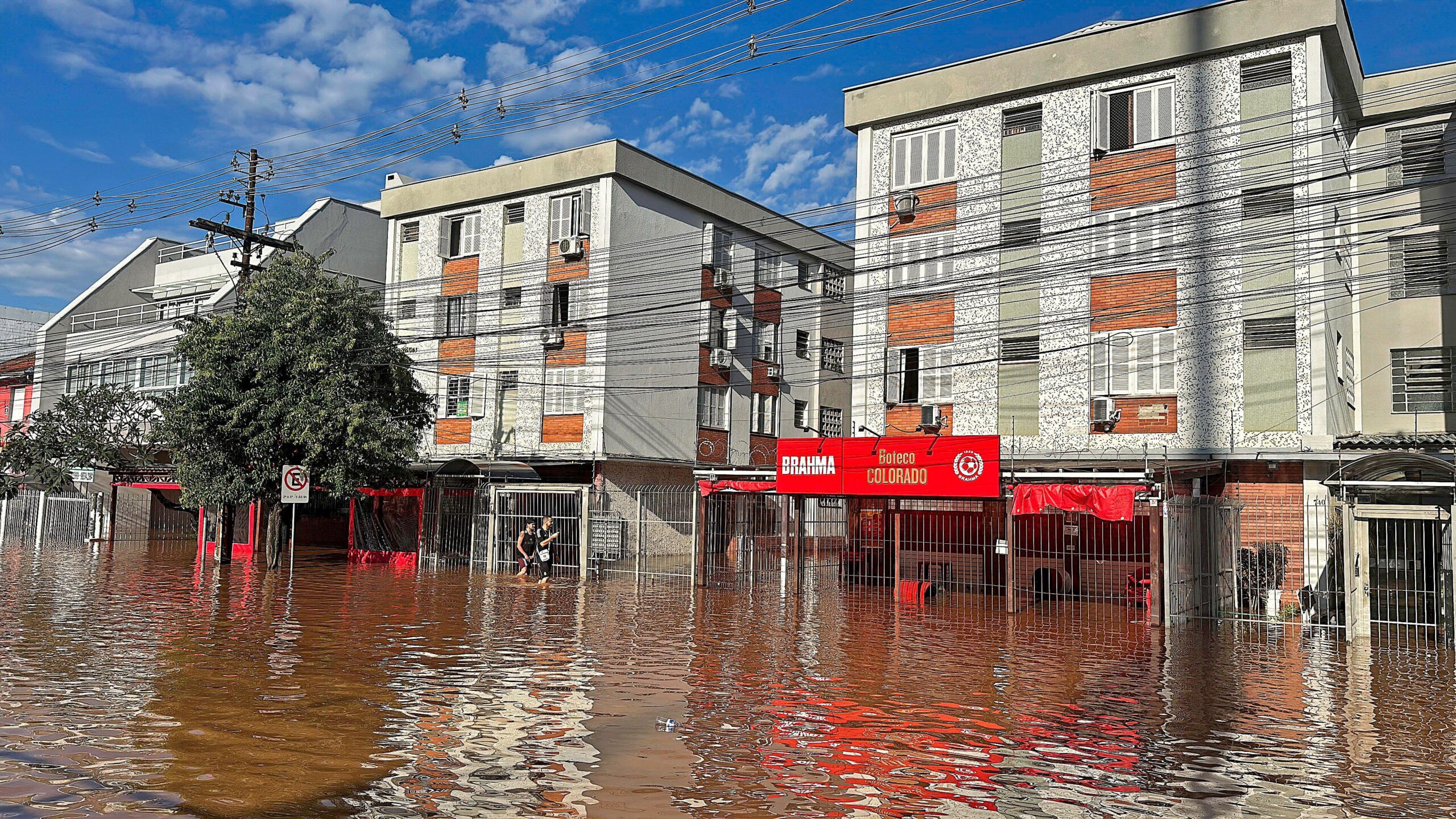
After a week of record-breaking rainfall in Rio Grande do Sul, Brazil is experiencing an environmental and humanitarian tragedy. The death toll from the floods is in the dozens. The number of missing persons has surpassed 100. Hundreds are injured, and thousands displaced. Nearly 1.5 million people are affected. Each story of life and death touches us deeply. The anonymous heroes multiply, and their stories inspire us.
Here at WRI Brasil, we are particularly shaken by the tragedy: One of our offices is in Porto Alegre, where we have dozens of friends, collaborators and partners. We have been taking actions to minimize the impact and take care of the people affected.
The situation is one of uncertainty, concern and fear. Floodwaters are still rising in some areas. Every day brings new reports of water and power shortages. It is a time for solidarity in aiding those stranded and helping those in need, especially as winter approaches.
It’s also a time for analysis and action — especially after people return to their homes, resume their lives and reconstruction efforts begin.

The Southern region of Brazil has already been hit by five extratropical cyclones in the last 12 months — a situation exacerbated in 2024 by a strong El Niño. According to the National Confederation of Municipalities, more than 28.8 million people in Brazil were affected by disasters related to rain, floods and landslides between 2017 and 2022. In just one year, these disasters cost over R$ 105 billion ($20.4 billion) from public coffers.
Intense rainfall and prolonged droughts are increasingly becoming Brazil’s new reality, making urban preparedness an urgent task. We are living in extreme times. There are many factors that contributed to this humanitarian and environmental crisis. All are relevant and deserve careful consideration due to their complexity and interconnectedness.
One is a failure of government domestically. Risk mitigation projects and disaster prevention measures have been shelved for years across all levels of government. Management has been inadequate. There has been little integration between states and municipalities. There are still politicians and public administrators who doubt climate change or do not use climatological models at the appropriate spatial and temporal scales for their planning. Ecological zoning is in its infancy. There is a lack of resources. In recent years, environmental legislation has been dismantled, reducing Brazil’s resilience to climatic shocks. This lack of prioritization is evident across all political ideologies, highlighting a systemic issue in our national political thinking.
But in many ways, this is not a disaster of Brazil’s making. The whole planet is experiencing increasingly rapid climate changes due largely to the greenhouse gases produced by a handful of wealthy nations.
In just the past few weeks, several countries across different continents have faced disastrous consequences. Our colleagues in WRI Africa are dealing with heavy rains and dam breaches in Kenya. A highway slid down a mountainside in the south of China. Airport runways were submerged in the Dubai desert. Mines flooded in Australia.
“In this context, it is important to remember that the impacts of climate change disproportionately affect the most vulnerable and compel us to urgently seek adaptation solutions,” said Luis Antonio Lindau, Director of Cities at WRI Brasil.
This is no shortage of quality data forecasting climate change’s escalating risks. In Brazil, public institutions like the National Institute for Space Research have long indicated the country’s high risk to extreme precipitation and droughts, as well as gradual events like sea-level rise, said Karen Silverwood-Cope, Director of Climate at WRI Brasil.
We also largely know the solutions. Risk reduction measures such as efficient alert systems and disaster management are important, but not enough. In many regions, we are still relying on 20th-century infrastructure focused almost solely on concrete and steel. We must shift to 21st-century infrastructure that utilizes nature-based solutions — things like restoring degraded forests to provide a buffer against floods and erosion, or protecting wetlands to absorb excessive rainfall.
New solutions also include urban land use management aligned with housing policies. We must address housing issues, focusing on master plans and zoning that consider the complexity of urban fabric. Providing safe housing close to job opportunities, education and leisure is crucial — not only for improving quality of life, but for enhancing resilience to the impacts of climate change.
These new solutions require significant investments in prevention and adaptation. They demand cooperation between municipalities and states; rivers cut across bureaucratic borders and show us, once again, the need for integrated responses. They require that climate financing for adaptation and resilience actually reach the most vulnerable. And they require coordination between governments, civil society and business.

Amidst all this tragedy, we hold onto a hopeful outlook. Reports from our team in Porto Alegre indicate that the greatest rescue and assistance efforts are coming from “our people,” ordinary citizens. They are people who have chosen to stay in the city and help neighbors and strangers in the most affected neighborhoods. They are risking their health and well-being to wade into the muddy waters of Guaíba that have inundated the city. They are mobilizing through social media and organizing rescue teams on boats, jet skis, boats, rubber rafts, on foot — however possible. They are aiding the courageous firefighters, Civil Defense, and social assistance teams from cities and rural towns.
Political will must match the spirit we’re seeing from Brazilian cities today to address the new economic, social and environmental challenges brought by climate change. It is high time leaders dared to do more and differently, inspired by the thousands of people risking their lives and mobilizing to help strangers. When I look at this movement, I see a powerful human force. It is from this energy that we need to draw strength to face the challenges posed by the climate emergency.
This article originally appeared on WRI’s Insights.
Cristiane Fontes (Krika) is Executive Director of WRI Brasil.






